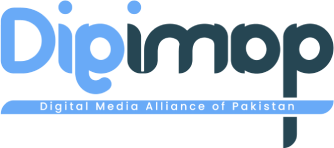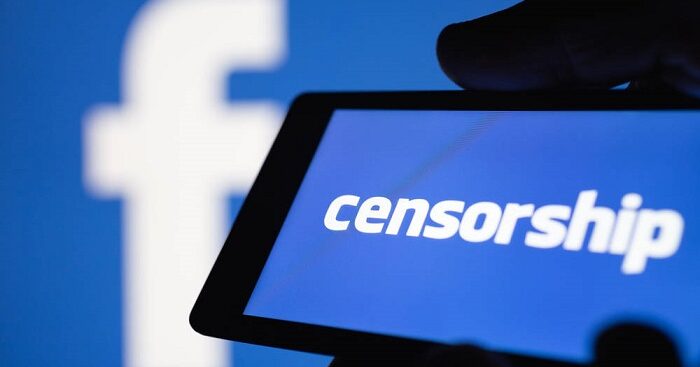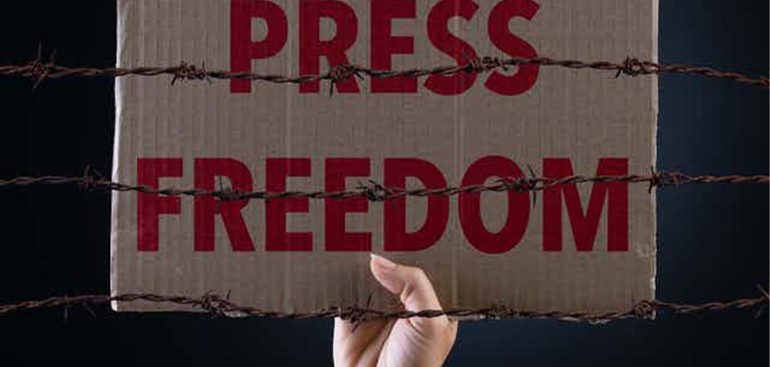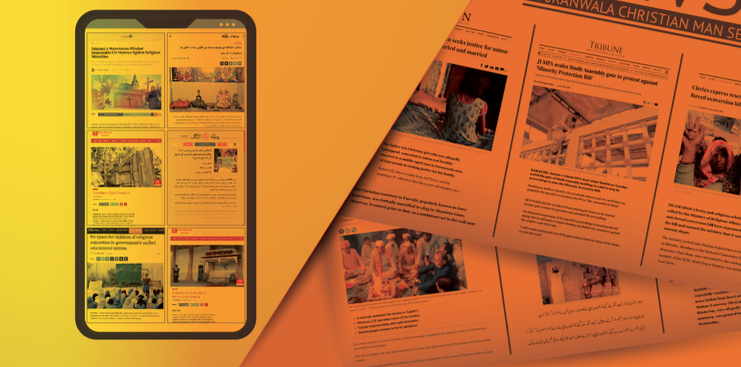Facebook is arbitrarily shutting down accounts discussing the Taliban takeover of Kabul and how the local communities are faring under the new rule of a group widely considered regressive in its ideology and quick to unleash aggression against critics and dissenters, especially women. DigiMAP demands an end to this policy and considers it a harsh form of censorship.
A particularly disturbing trend is that Facebook is blocking/limiting/restricting accounts of local journalists and digital media platforms sharing their opinions and reports on the subject but is tolerating commentators in the west talking about the same on their Facebook profiles. Journalist Adnan Rehmat’s case is a glaring example where his account was restricted by Facebook ‘for posting a photo of Pakistan’s ISI chief with Mullah Baradar’. “Strangely, the account of Arif Jamal, from where I borrowed the picture, is active and the photo is still there”, Adnan Rehmat told DigiMAP.
Adnan Kakar, the editor at HumSub, a progressive Urdu website, noted that Arif Jamal lived in North America while Adnan Rehmat had made the post from Pakistan. It is pertinent to mention here that Adnan Kakar’s personal account has also been permanently banned by Facebook.
“Any dragnet also appears to be mistakenly entangling others who have posted content pushing back against the Taliban. After the news site HumSub published an article this month to counter a local newspaper column praising another Taliban founder, Mullah Muhammad Omar, Facebook removed the article”, New York Times quoted Adnan Kakar as saying in a recent news story on Taliban’s ramped up a presence on social media.
“Immediately, we got a message that ‘your article is removed because of standards on dangerous individuals and organizations,’” he said. Mr. Kakar said his personal account and HumSub’s Facebook page were also suspended for 24 hours and blocked from livestreaming and advertising for 60 days. When he challenged Facebook, he said, he got no response.
Compounding the difficulties facing the platforms, many of the new pro-Taliban accounts have been careful to post content that does not openly espouse violence or hate speech, which would violate the companies’ rules. Mr. Kakar’s account is now permanently disabled by Facebook.
DigiMAP President Sabookh Syed’s account and the Facebook page of the digital media website that he heads, IBC Urdu, have also been blocked by Facebook for reporting on the latest developments in Afghanistan.
DigiMAP emphasizes that as per journalistic principles we report on public interest issues. Even if there is banned organization, if its members appear in public space, then commenting or reporting on such characters is a journalist imperative, not personal. Facebook needs to understand this, which it is failing to do. Punishing journalists for their journalistic acts is itself an act of censorship and cannot constitute a part of any legitimate community guidelines. This ends up hurting democracy and helping achieve the very purpose of terrorist groups: to ban free speech and escape accountability.
We, the Digital Media Alliance of Pakistan, believe that this policy must be reviewed at the earliest and Facebook needs to stop shutting down local voices watching the situation unfold from the ground. A petition to demand an end to ‘stop Facebook’s arbitrary restrictions/bans in the name of community standards’ has been started on change.org; we urge the readers to sign the petition and help us be heard.
(Ali Warsi, Lahore, for DigiMAP)
Kindly sign and share the following petition at change.org
Petition: Stop Facebook’s arbitrary restrictions/bans in the name of community standards



